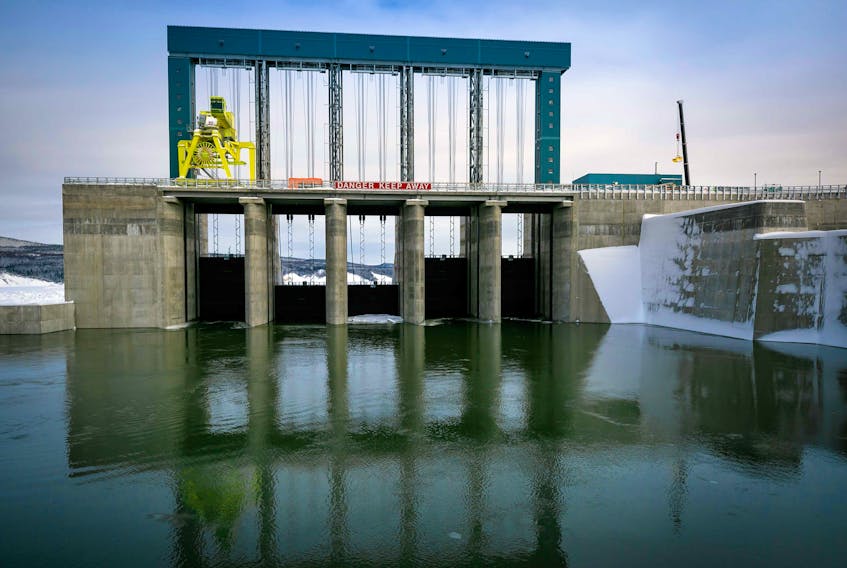No matter the stripe, no matter the government we elect, why is it that government always seems to want to deceive its own citizens?
Stan Marshall barely had time to catch his breath when he confirmed what naysayers have long known — that we did not need Muskrat Falls power.
Contrary to what our government had been telling us, Marshall said that power that had been forecast as needed by 2020 would not, in fact, be needed until 2036.
Even now, and only after considerable public pressure, our “new” government has gone ahead and established a public inquiry into what has long been recognized as the Muskrat Falls boondoggle.
But are we again being deceived?
Wikipedia defines a premise as only “an assumption that something is true.”
A premise, an “assumption,” is not a fact. A premise, an assumption, may never be a true statement.
Relying, therefore, on one or more premises (assumptions) as the basis for the conduct of a more than $30-million public inquiry seems an unusual way to get at the truth (see also “...a commission of inquiry based in part on circular reasoning or other fallacy.” https://www.muskratfallsinquiry.ca/files/20180209-Maurice-E.-Adams-R.pdf ).
Nevertheless, the inquiry terms of reference have not directed that the commission inquire into whether or not the island actually needed more power.
Related story:
Muskrat Falls cost stays steady
Instead, it has been directed to inquire into “the consideration by Nalcor of options” — options that in the language of the terms of reference itself have been premised 1.) on the “assumption” that Nalcor based its “decision to recommend that government sanction the Muskrat Falls Project” on its consideration of those options; and 2.) on the further assumption that these options would actually “address the (real, reasonable/affordable/low risk) electricity needs of Newfoundland and Labrador’s Island interconnected system customers... .”
Neither of these premises (assumptions) have a firm basis in fact. They are assumptions — nothing more.
While “options” were considered, it is not at all clear that it was Nalcor’s consideration of these options that “informed Nalcor’s decision to recommend...sanction.”
Furthermore, it is not at all clear that the options that were considered were ones that “address(ed) the (real, reasonable/affordable/low risk) electricity needs of Newfoundland and Labrador’s Island interconnected system" (e.g. see also “...the commissioning of a bogus study...” https://www.muskratfallsinquiry.ca/files/20180212-Stephen-Bruneau-Three-Documents-Combined-R-2.pdf ).
Even former minister Jerome Kennedy, during the Muskrat Falls sanction debate, said that he first needed to “convince himself” that we needed the power.
Given what we already know, why should we trust (and why should the commission trust) that Nalcor’s options were (as the terms of reference assumes) ones that addressed the island’s needs? And, in turn, why should we accept that it was Nalcor’s consideration of these options that “informed” its decision to recommend sanction?
Notwithstanding these flawed premises, the terms of reference section 4 (a) links the commission’s inquiry to these circularly reasoned, piggybacked premises (and I would suggest, intentionally so).
A former chairman of the U.S. Permanent Select Committee on Intelligence recently commented that Congressional reports were flawed because the separate Republican and Democratic reports began first with a premise and only then filled them with information and analyses that supported their premises.
The people of this province deserve more than an inquiry based on flawed premises/assumptions, assumptions piggybacked on other flawed assumptions, and that intentionally or otherwise leads the commission down a rabbit hole.
Inquiry analyses of assumptions and forecasts based on “the knowledge that was available at the time” or on whether or not they were “reasonable” is like handing government and Nalcor a political get-out-of-jail-free card.
Such purposefully designed phrases allow (and even require) the inquiry to excuse government's marketing of Nalcor as “world class experts,” to excuse Nalcor’s marketing of its 50-year average 0.8 per cent yearly demand forecast as “conservative,” to excuse Nalcor from saying that Hydro had experience in making 40-year forecasts, to excuse what should have been the project’s application of industry best practices and other standards, to excuse the oft-repeated phrase that Holyrood burns 18,000 barrels of oil a day in winter when that occurs only when it operates at capacity (on average for 1.6 per cent of the year). And on and on it goes.
Commissioner LeBlanc has the right (and an obligation) to work not with a terms of reference designed to deceive, but one that allows him to search for truth.
Is he up to the task?
Time will tell.
Maurice E. Adams
Paradise









